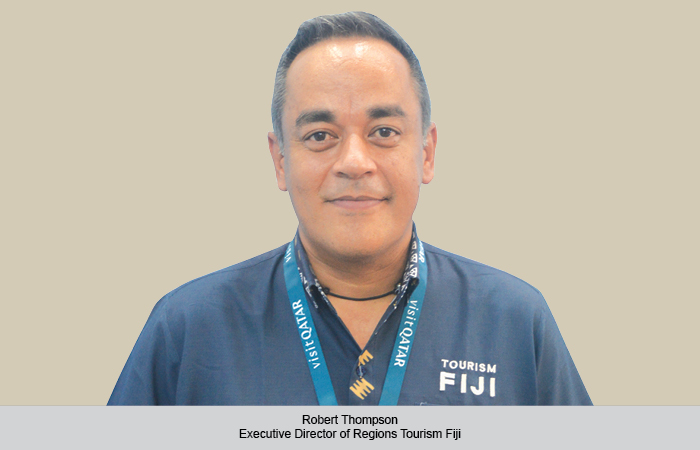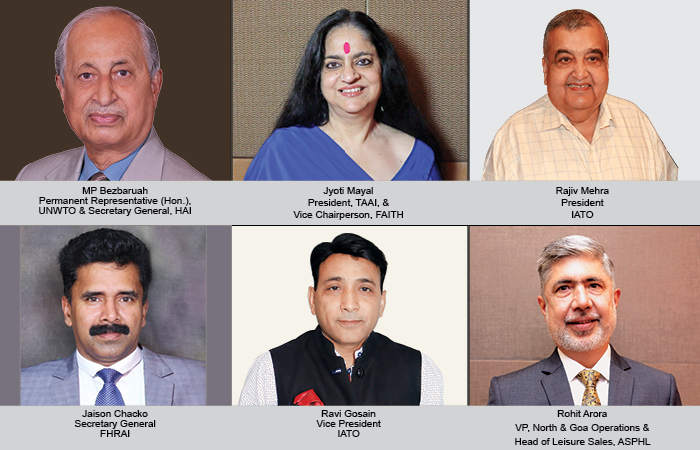PATA India Chapter recently organised a webinar titled ‘Europe: The New Order – Market Expectations and Opportunities’, where reputed Destination Management Companies (DMCs) from different regions in Europe shared how these markets interpreted India as a destination, and what Indian tour operators could do to attract numbers.
Nisha Verma
Divided into three regions, the PATA India Chapter webinar provided key insights into how Europeans perceive India, and what can be done to attract tourists from the region in even greater numbers. With COVID-19 having changed the dynamics of tourism the world over, it is time that India make the most of the opportunity and market its products as per the source market.
German-speaking markets: Austria, Switzerland & Germany
Giving an insight into how TravelMarketing Romberg (TMR) dealt with clients during the COVID-19 crisis, Gabi Romberg, Owner & General Manager, TMR, said that while their clients cut costs and budgets, nobody cancelled contracts because post the crisis, they all want to come back and work in the German market again. “The most important thing for TMR was that just after the lockdown in March, we started sending ‘TMR Corona Update’ thrice a week to all our clients, with detailed numbers, market news, trends, etc. We also shared best practices from other destinations,” she said.
Philipp Grimm, Account Manager, TMR, said that their company conducted a survey among more than 100 participants regarding their travel preferences, especially focusing on India. Stating that Germans are open to travel within Europe, he said, “We asked participants if they had travelled abroad since March, and nearly half of them (48%) said yes. However, places which are safe to travel to and from where it’s easier to get back home are preferred, like Austria and Western Europe which includes Netherlands, Belgium, France, etc. In fact, Southern Europe — sunny beach areas like Spain, Italy, and Croatia — were also a big hit.”
He added that after hitting zero bookings at the onset of the crisis, travel bookings have slowly but steadily been rising again, mostly for short-distance holidays booked on a short notice. “In fact, loss of summer business could be over 60 per cent in turnover and winter season almost 40 per cent,”
he informed.
Changes in 2020
Highlighting the trends of 2020, Grimm said that safety and hygiene were a top criteria for people to travel. “A survey by insurer Allianz has revealed that the proportion of German citizens for whom security at the vacation destination is important has risen from one-fifth to one-third within one year, and the need for good medical supplies has almost doubled. Also, Germany has been a market reliant on tour operators and travel agents, which is set to rise further owing to safety, assurance, refunds in case of cancellations, and timely travel warnings. The winners in this crisis are holidays where one can be on their own, socially distanced, such as rural holidays, camping, self-driving and holiday homes, while holidays that lose out are where one has to be with many foreign and unknown people, like cruises, city tours, group travel and hotels in general,” he said.
Perception of India as a destination
Sharing insights from their survey on how the German-speaking markets perceived India as a vacation destination in a post-pandemic world, Grimm said that on the positive side, people think that India is a very diverse country with good food, rich culture, impressive buildings, monuments and attractions. “On the other hand,” he added, “we saw that people consider India as a place with many crowded cities, some hygiene deficits and poverty, but they don’t have any knowledge of life beyond the hotspots that are shown in the media. We think that targeted awareness and marketing campaigns to show all facets of India would be vital at this time. Hence, India must communicate its adaption to the current situation through all channels. There is a need to communicate the positives — what’s good, what’s happening in different areas, what’s happening with businesses, and present a good concept. Then, India will have a very good chance to come back on top of people’s minds or travel bucket lists when it’s possible to travel again.”
Concluding, he said, “Our message for India is to get prepared now. It’s time to raise awareness, good content pieces and good messages, as people are getting inspired by future travel destinations now.”
 TravTalk India Online Magazine
TravTalk India Online Magazine





